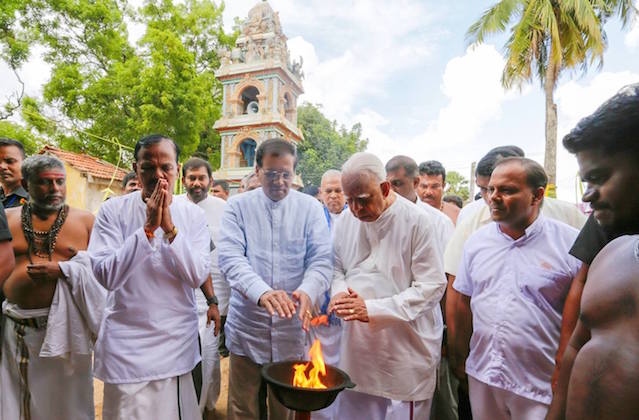Sri Lanka At The Crossroads: Pursuing Accountability & Strengthening The Rule Of Law
Given the recent political developments in Sri Lanka in 2015, namely the Presidential and Parliamentary Elections, it is prudent to ask: what will the new and old government in the post-Rajapaksa era do to encounter impunity and achieve accountability in Sri Lanka? Shortly ahead of the next United Nations Human Rights Council Session in September, it seems that the Obama administration -that initially pushed firstly for the investigation and later for its deferral- favors a domestic mechanism to prosecute perpetrators for alleged war crimes.
The author will inquire firstly discuss the elections and the implications of the results on accountability, the evolution to the upcoming Report of Office of the High Commissioner for Human Rights (OHCHR) and the current state, depict other venues for achieving accountability while using other country examples; subsequently, he will discuss the feasibility of those mechanisms and finally present his own findings as how accountability can be achieved in Sri Lanka.
The elections
After the surprising victory of opposition candidate Sirisena in the Presidential election, Foreign MinisterSamaraweera said that Sri Lanka will create a domestic mechanism within two months to probe allegations of rights violations and bring perpetrators to justice. He called for the UN report to be held back saying the UN findings could then be referred to the domestic mechanism for “necessary action.”
 “Unlike the previous government we are not in a state of denial, saying that such violations have not happened. We believe such violations have happened,” Samaraweera told the Carnegie Endowment for International Peace. “We are ready to ensure that those who have violated human rights in Sri Lanka will be brought to justice through such a mechanism.” The Parliamentary election now validated President Sirisena once again. The electoral defeat of the former president Rajapaksa for a second time within six months showed that he, Rajapaksa, has not understood the dynamics of change that has got embedded in public discourse to win elections. This election may now pave the way for genuine approach to reconciliation and accountability, while Mr. Sirisena and Mr. Wickremesinghe have not won in the North and the East. They still have to win the confidence of the Tamil population, now with the greater sense that the international eyes are on Sri Lanka,
“Unlike the previous government we are not in a state of denial, saying that such violations have not happened. We believe such violations have happened,” Samaraweera told the Carnegie Endowment for International Peace. “We are ready to ensure that those who have violated human rights in Sri Lanka will be brought to justice through such a mechanism.” The Parliamentary election now validated President Sirisena once again. The electoral defeat of the former president Rajapaksa for a second time within six months showed that he, Rajapaksa, has not understood the dynamics of change that has got embedded in public discourse to win elections. This election may now pave the way for genuine approach to reconciliation and accountability, while Mr. Sirisena and Mr. Wickremesinghe have not won in the North and the East. They still have to win the confidence of the Tamil population, now with the greater sense that the international eyes are on Sri Lanka,

